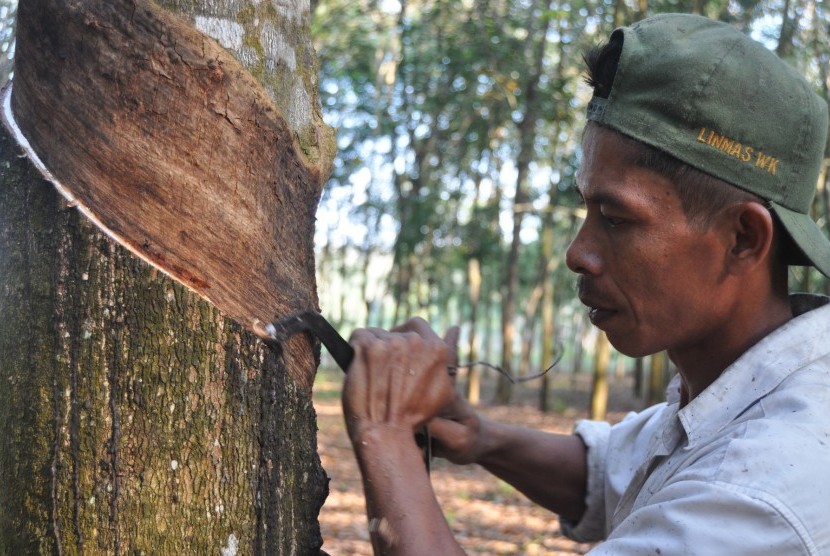REPUBLIKA.CO.ID, PALEMBANG -- The Indonesian Association of Rubber Companies (Gapkindo) asked the government to expand rubber market in the country to increase demand for the commodity in the country.
The price of rubber began to fall in mid 2014 on weak demand especially in international market.
Chairman of the South Sumatra chapter of Gapkindo Alex K Edy said on Sunday the annual supply of 3 million tons of natural rubber to the world market should be cut.
The price of rubber has continued to decline on surplus in the market and weak demand from major consumers including India and China.
"Gakindo already has meetings with the trade and Industry ministers to discuss way of increasing demand for rubber on the domestic market," Alex said.
The response was positive by seeking to develop downstream rubber industries, he added.
He said rubber could be used in the production of asphalt, construction of dockyards, anti quake building system and rail track cushioned with rubber and material for irrigation water gates.
In the first phase, Gapkindo hopes to dispose of 600,000 tons of rubber on the domestic market, up from 450,000 tons normally a year.
"Now it is up to the government on how to develop downstream rubber industry using the abundant raw material," he said.
Rubber supply to international market has increased with the emerge3ncy of three new major producers including Vietnam, Myanmar and Laos.
"The price is no longer comparable with production cost. It is feared that farmers would no longer want to grow rubber unless the government takes a drastic step," he said.
The price at the level of farmers, is around Rp17,000 per kilogram of dry rubber shrinking from a peak of US$5 per kg when Chinese economy grew 9.2 percent.
Indonesia is the second largest producer of natural rubber after Thailand.
The International Tripartite Rubber Commission (ITRC), which groups Thailand, Indonesia and Malaysia, respectively the world's largest, second largest and third largest rubber producers, has also called for development downstream rubber industry to increase demand for the commodity amid the slump that hits international market.
ITRC which was established in December, 2001 by the three countries accounts for around 67 percent of the global production and 79 percent of world exports of natural rubber.
ITRC is responsible for coordinating and monitoring the implementation of the natural rubber supply measures,including Supply Management Scheme (SMS) and the Agreed export Tonnage Scheme (AETS).


